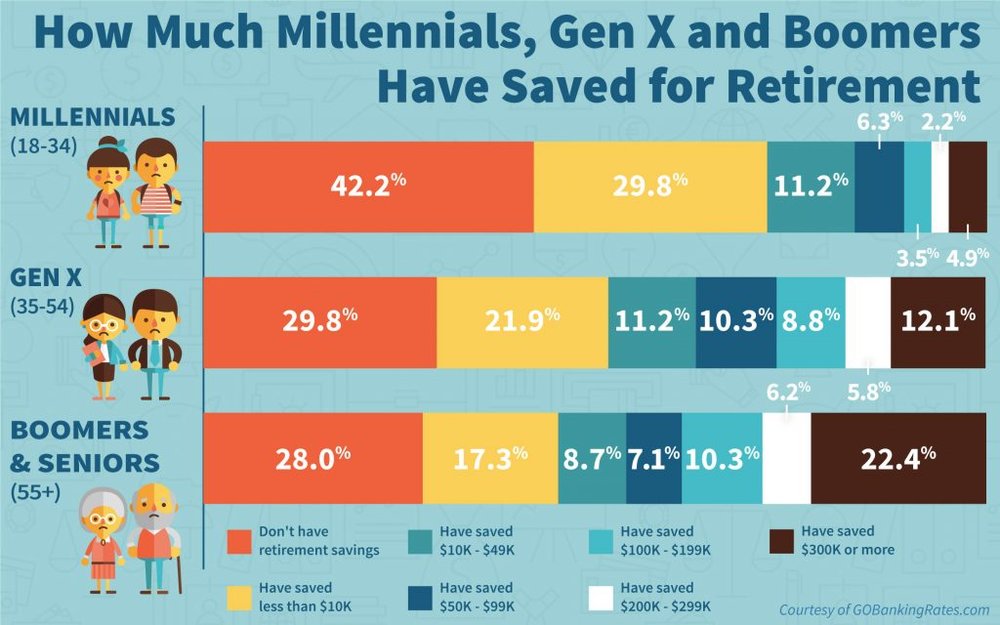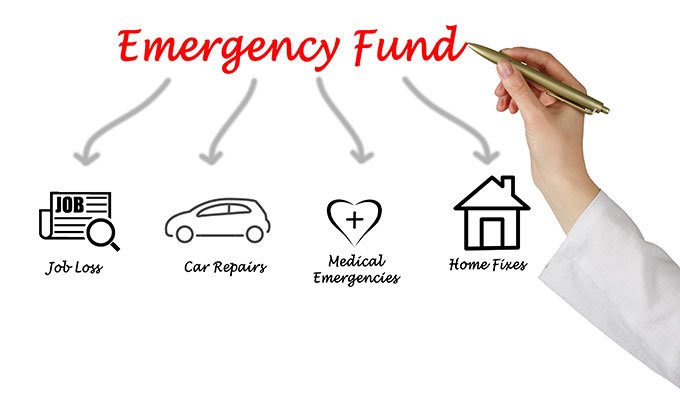
How Do Single People Prepare For Their Retirement?

How often do you think single Americans plan for their retirement? How are they taking steps toward security when it comes to finances when they retire? Or is it in a happy-go-lucky way? Unfortunately, TD Ameritrade suggests that single Americans practice the care-free way when it comes to retirement, according to their most recent survey. The recent survey, Singles & Money, have found that only 44% of the single Americans are saving for their retirement compared to the other 66% married ones. This proves to be true by the previous surveys done by the Economic Policy Institute.

How Singles Are Planning their Retirement in this Modern Digital Age
There were 49% among the singles that are men and 41% women who are saving for their retirement. This means that the 29% of single Americans do not worry about investing in their future for any reason against the 17% married respondents.
This may be due to the singles’ background on generally having fewer responsibilities and obligations when it comes to finances and the logic that they do not have to worry about anyone but themselves. The survey has also found that the beginning of the retirement savings starts close to the age 32 for both married and single Americans. This reflects that a greater percentage of American singles have not started thinking about their plan for retirement yet.
Typically, the married couple has more opportunities to work with.

Married Couples Have More Combined Income than Single
The study suggests that the average personal income of single Americans was $52,900 as compared to the married ones who earn up to $61,700. The lower expenses should even this gap but this isn’t the case.
There are 40% of the total respondents (both married and unmarried) who wouldn’t cut back on eating out when they were asked what perks they cut back if they had to reduce the expenses to make ends meet. Both married and unmarried also have the same response when they were asked about cutting back other perks. These perks include housekeeping services used by 10% (married) and 12% (single), specialty food items: 14% (M) and 12% (S), beer/spirits/wine: 22% (M) and 21% (S), coffee: 24% both, and electronics: 18% (M) and 17% (S).

Singe Persons Are Able to Set Aside an Emergency Funds than Married Couple
This, together with other survey results finds that there are only a few portions set aside for emergencies. Only 27% of singles have emergency funds compared to the 39% respondents that are already married. The automatic retirement contributions also have lower rates having 34% for singles compared to 42% for couples, lower home ownership of 58% (S) vs. 90% (C), lower savings and investment rates of 11.7% (S) and 15.6 (C). It is crystal clear that a great part of the singles’ income doesn’t go to potential assets like savings, investments, and equity. These assets could be a good way to secure their future.
According to other surveys, singles are aware of this but have already rationalized the result of the survey.
There are 43% married couples who feel very secure in their retirement compared to the 29% of singles. This may be due to the singles who are spending their entire paycheck every month: 40% (S) vs. 37% (C). The survey concluded that half of the single respondents are either expecting to just scrape by, pushing plans of retirement off, or completely unprepared for retirement compare to only 35% of married respondents.
A major factor could be the element of control. The biggest benefit of being unmarried is having complete control over their finances that is felt by 30% unmarried respondents. This control may need some extra help (friend, financial advisor, or roommate) to establish the discipline in finances and use it wisely.
Singles could start with a budget if they really want to stay in control of their own finances.

Start Saving Now While You’re Still Young and Free
Tracking the percentage of where finances go could be a surprise. While dining out could be cut if eating out is your kind of thing. Enjoy being single without spending too much on unnecessary things. The point is to learn financial discipline: what are the set priorities and identify what are the desired goals you aim to have. The more concern you put on retirement means less worry in the future.
More in Advisor
-
`
Matthew Perry Foundation Launches Addiction Fellowship at MGH
The impact of addiction on individuals and families is profound, and the need for specialized medical care in this field has...
February 13, 2025 -
`
Celebrity Couples Who Have Ended Their Relationships in 2025
2025 has already seen its fair share of celebrity breakups, and the year is just getting started. From heartfelt announcements to...
February 6, 2025 -
`
How Trump’s Policies Will Reshape Artificial Intelligence in the U.S.
The United States witnessed a significant political shift as Donald Trump took the presidential oath once again. His return to the...
January 31, 2025 -
`
Millie Bobby Brown Shuts Down Age-Shamers with a Powerful Message
From the moment Millie Bobby Brown first appeared as Eleven in “Stranger Things,” she captured hearts worldwide. But growing up in...
January 25, 2025 -
`
Why Outsourcing Payroll Services Is a Smart Business Move
Managing payroll is no small task—it’s a crucial part of any business that ensures employees are paid accurately and on time....
January 15, 2025 -
`
These AI Stocks Should Be on the Watch List of Investors in 2025
The buzz around AI stocks is growing louder than ever. With artificial intelligence shaping industries like healthcare, finance, and tech, smart...
January 8, 2025 -
`
Why the Starbucks Workers Strike Is Expanding Across U.S. Cities
The Starbucks workers’ strike has gained significant momentum, with employees in more U.S. cities joining the movement to address unresolved issues...
January 2, 2025 -
`
Are Shawn Mendes and Camila Cabello Still Close After Breakup?
The connection between Shawn Mendes and Camila Cabello continues to intrigue fans worldwide. Their shared history, from chart-topping collaborations to a...
December 24, 2024 -
`
Here’s What It Takes to Become a Professional Physical Therapist
Physical therapy is a career that blends science, empathy, and problem-solving to help people recover from injuries or improve mobility. Knowing...
December 19, 2024















You must be logged in to post a comment Login